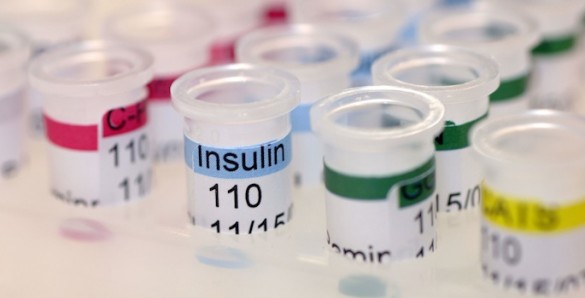Insulin resistance – a condition in which cells fail to respond to the hormone insulin – precedes the development of type 2 diabetes and is associated with cardiovascular disease. Studies suggest that insulin resistance in muscle includes changes to the extracellular matrix (matrix protein accumulation) and capillary blood vessels (lower number of vessels).
Jeffrey Bonner, Ph.D., David Wasserman, Ph.D., and colleagues studied the ability of the hormone relaxin, which has vasodilatory and anti-fibrotic actions, to rescue muscle insulin resistance. They report in the September issue of Diabetes that acute relaxin infusion enhanced skeletal muscle blood perfusion and insulin action in mice fed a regular chow diet, but not in mice fed a high-fat diet. Chronic relaxin infusion, however, reversed insulin muscle resistance and enhanced skeletal muscle capillarity in mice fed a high-fat diet.
The studies suggest that relaxin offers a novel approach for treating diet-induced insulin resistance and vascular dysfunction, by targeting the extracellular matrix and vascular changes that accompany this condition.
This research was supported by grants from the National Institutes of Health (DK054902, DK059637, DK020593).













